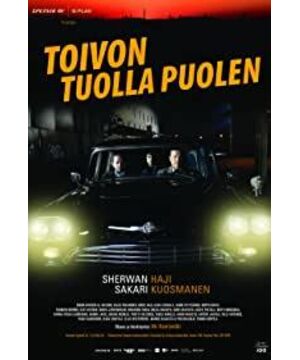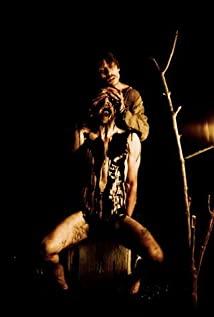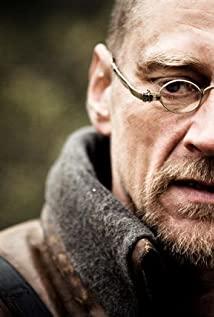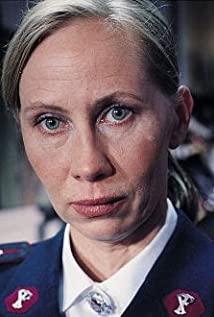Fans who are familiar with Kaurismaki know that "The Other Side of Hope" is not only his new work, but also like our long-lost friends. Finnish director Aki Kaurismaki is good at rooting in the bottom of society, showing the frustrated life of small and medium-sized people in the city with a civilian standpoint and sympathetic attitude, and has created a series of successful images. Among them, the retro tones and nostalgic melody, the symbolic fixed scenes, and the unchanging band style are the most special embellishments in Aki's movies.
Continuing the refugee theme of the previous work "Le Havre", "The Other Side of Hope" brings the story back to Helsinki, Finland, and the protagonist has also changed from a smuggled black boy in the previous film to a Middle Eastern brother. What remains unchanged is the two-line parallel story structure. On the one hand, it is the experience of Syrian refugee Khalid when seeking political asylum in Finland, and on the other hand, the business experience of the local restaurant owner after he separated from his wife. The film uses an intriguing way of telling, allowing the two main story lines to advance slowly, and then unknowingly converge.
After the characters collided, all events began to take a turn for the better.
This turning point is the "hope" in the title of the film.
When I saw the name "The Other Side of Hope", the first thing I thought of was a scene from the third "Twilight Light" by Aki's "Contemporary Finland Trilogy":
The security man was taken advantage of by the femme fatale and went to jail. After he was released from prison, only the commissary woman who had been secretly in love with the security man was willing to visit him. Seeing his still eloquent planning for the future when he was injured, the woman in the commissary said to him:
"I'm glad you didn't lose hope."
The protagonists of Aki's movie are all in desperation, with sad faces, shrinking in the street corners and smoking cigarettes. But they all have a kind of confidence in the future and persistence in hope. No matter how many ruthless blows life brings to them, as long as there is a chance for reconstruction, they will desperately seize it, and are not willing to give up the dawn of life easily.
Just like the refugee Khalid in "The Other Side of Hope", he fled from Syria to Helsinki eager to get political asylum, but failed to pass the inspection by the Finnish Immigration Service and will be deported. The desperate Khalid escaped from the immigration bureau with the help of well-wishers and started working under the local restaurant owner.
After losing the right of asylum he came here to pursue, Khalid got even more by accident: a new identity, a hidden place, a job with no worries about food and drink, and all his partners in the restaurant.
The reason for Khalid's escape was to look for his sister who was missing in the evacuation route. The living condition of his only relative is the light of hope that supports him in his lonely journey in a foreign land. So he chose to register at the police station at the beginning, so he couldn't accept being deported later, so he worked and lived hard in the restaurant, asking for news from his sister at any time.
This is undoubtedly another story that happened in the pursuit of hope. Can people who have not lost hope get what they want through unremitting firm conviction and almost stubborn optimism ?
Aki’s answer was playful.
He likes to elevate the role of the victim to a very positive character height, and then bestow the warmth and warmth of the small people around him, adding even the exaggerated cruelty of the perpetrator, and then when all the audience holds the same sympathetic perspective as him , The story begins to reverse quickly, and the whole process is full of fairy tales.
It's like in "Floating Clouds", the couple experienced a series of ups and downs, and after a new hope (funded to operate a restaurant) appeared, they waited for the guests not to come. At this point in the story, the audience felt it was too bitter and difficult, and it was really cold to see. At the end of the film, the director made a big reversal. The restaurant was full of people from the crowd to the crowd, as if in a flash.
The director made such a "joke" more than once. In the “Twilight” just mentioned, the physically and mentally injured security man finally cuddled up with the woman who loved him after suffering; Sadly, his wife recovered miraculously. In "I Hired a Professional Assassin", the man who had given up suicidal thoughts was caught by the previously hired assassin. When in distress, the assassin shot himself at him, and the man was finally able to Escape.
Healed like a resurrection, the light falling from the sky.
The frustrated person finally finds a place to live in sudden love and luck. Such a miraculous, such a sudden, ecstatic hope appeared in Aki's movies, just like a warm joke he made to us.
The ending pictures are often nestling warmth, spring cherry blossoms, smiles looking up to the sky, unchanging expectations and hopes.
Therefore, when watching "The Other Side of Hope", the audience will no longer be fooled by the director.
However, in this movie, Aki's warmth seems to be much warmer.
The owner of the restaurant with a knife-mouthed tofu heart, kept saying: "Leave him aside."
As soon as the camera turned, the boss took Khalid into the new home, arranged for him to work, and also gave him some cash to take with him.
The immigration staff, who had been following Khalid, opened the door without changing his face when he was about to escape repatriation and began to flee.
The refugee friend I met at the immigration office generously helped Khalid pay attention to his sister's news and taught him to get used to the asylum life in Helsinki.
When encountering bullying by anti-refugee villains, unfamiliar righteous people will come to help.
In the end, Khalid successfully found his sister, and the restaurant owner and his wife settled their suspicions.
Except for this kind and warm joke, Aki's cold joke did not disappoint this time.
During an inspection, the restaurant gang hid Khalid. After concealing the truth, the man asked the boss:
"Can he (Khalid) come out?"
The boss looked at the cigarette in his hand blankly: "Of course, I have forgotten this person."
Aki's cold humor is light, with the very few dialogue in the film, giving the audience a sense of uprightness, seriousness and cuteness. For example, "I want a big glass of wine." and "Give me rat poison." in "The Match Factory Women Workers." Of course, if you have watched the Aki movie, one of the "proletarian trilogy", you will find the director Great changes in style.
The same expressionless people are constantly changing from cold to warm, from serious to humorous.
As a social manifestation of ordinary people at the bottom, Aki did not specifically define the standards of good and bad when performing good people and bad people, but only gave more humanistic care to those he sympathized with. Therefore, in "The Other Side of Hope", the refugees are good people with noble character and firm ideals, and the people who help them are the kindest Finnish citizens. The government, the immigration bureau, and even the side that opposes the refugees are naturally "bad guys." Aki removes other factors that affect the nature of human beings, and only makes the kind-hearted people encounter misfortune, and then reverse the misfortune and gain light.
Aki, who creates stories from the standpoint of civilians, likes to compare the ruthless social system and public system with the Nordic Xiao Su scenery and the grim faces of the local people.
In "The Other Side of Hope", many familiar scenes can be seen. Nostalgic green leather cars, hard-colored restaurants and cafes, Finnish people who love to drink, and bands playing everywhere in their bars and on street corners.
The restaurant and cafe are arguably the most important scenes in Aki's movies.
In "Twilight", the lonely silhouette of the security man in the restaurant after his release from prison has become a classic picture of the film; in "Le Havre", the protagonist's wife quietly watched her husband eat dinner at the table at home, feeling melancholy Because of her illness, there are many thoughts; the female workers in "The Match Factory Female Workers", fed up with the life of repressive life, eventually poisoned their families at the table; there is also the "Floating Cloud World", which is a restaurant movie, and countless Clear, the plot of the movie alone in bars and cafes for a drink.
The restaurant owner in "The Other Side of Hope" said this when he decided to switch to open a restaurant:
"Speaking of which, I have always liked the catering industry."
I think this is probably a confession of the director.
What's interesting is that, like "Floating Clouds", the restaurant business this time is not going smoothly, or we should have been used to the director's inertia of "smashing people" long ago.
Traditional business is not easy to do, so do what is popular. So, all together, everyone started to do Japanese food business, after all, "sushi is the most popular". This reminds me of the scene where the protagonist listens to music and eats sushi on the returning train at the end of "A Man Without a Past".
The director has the same continuous line from the general style to the details, and his work is closely integrated.
And the band's feelings that have remained unchanged for thousands of years. The aircraft head band that emerged from the early "Leningrad Cowboys", with the face covered by sunglasses that can't see the expression, lives hard and sings as much as possible; "The Old Times" is proud of "I want to be the year" The rock young man with a sense of love, unreservedly fantasizing and singing with all his strength.
The expressionless musicians and the charming melodies like the surging warm waves have become the specific symbols in Aki's movies. Together with those combined performances, they have fixed countless scenes in the movie.
Of course, Aki’s movies are indispensable for sharp sentences.
In "I Hired a Professional Assassin," the man said to the woman: "Do you want to abandon the motherland?"
The woman replied: "Workers have no motherland."
In "The Other Side of Hope," the brother said to his sister: "I hope you can survive."
My sister replied: "How easy it is to die, I want to live."
And the clothing dealer said: "People love to drink when the fortunes are bad, and they like to drink more when the day is better."
They shifted their words less and more into the expressions of their eyes, so the words were spoken, every word was pearly.
Symbolic familiar scenes, highly personalized familiar faces, exquisite and ingenious, a turn of events that makes people laugh and cry. Fortunate people are indifferent on the outside, but soft and strong on the inside. The director used a short period of sadness and a slow and long warmth to make the icy northern Europe stage a story of joy and sorrow like melting snow. Although not ups and downs, it is cool and moving.
You can summarize Aki’s movie in one sentence: disasters occur from time to time, and good people often appear; when the mouth is silent and the heart is bitter, when the eyes are cold and calm, the light falls from the sky.
Those happiness and light that are reversed in time and fall from the sky are actually a way for the director to fantasize about beauty and his strong desire for hope.
Going back to the beginning of the article, the turning point brings "hope", then the "other side of hope" is that there is no turning point, it is a state of despair. Placed in this film, "the other side of hope" is Khalid's obsession to survive from desperation, the process of finding hope in despair. In other words, the "other side of hope" is looking for a turning point, even if you find a trace of light in the darkest place, it is the light of twilight.
Aki used the movie to tell us that even if we live in high-welfare Finland, there are many imperfect and unsatisfactory people and things. For the disadvantaged people living on the fringe of society and at the bottom of the city, Aki examines the meaning of hope for them from an unchanging perspective.
Hope is a luxury, but it is easy to get in the movie. It's just climbing from "this side" to "the other side", and so on.
Just like the last scene of the film: Khalid was lying under a tree with his stabbed body, facing the big city across the river in front of him, maybe thinking about the future of himself and his sister, the corners of his mouth slowly rose. At this time, a puppy jumped onto him, expressing his enthusiasm intimately. Accompanied by this picture is the warm, uplifting love song of the band.
In the movie, Khalid finally found his sister and won the acceptance of the city.
I'm glad he didn't lose hope.
First published on WeChat public account: movie432, welcome to follow.
View more about The Other Side of Hope reviews











